The Evergrande crisis strikes at the heart of Beijing's legitimacy
What will Chinese citizens save for, if not real estate?

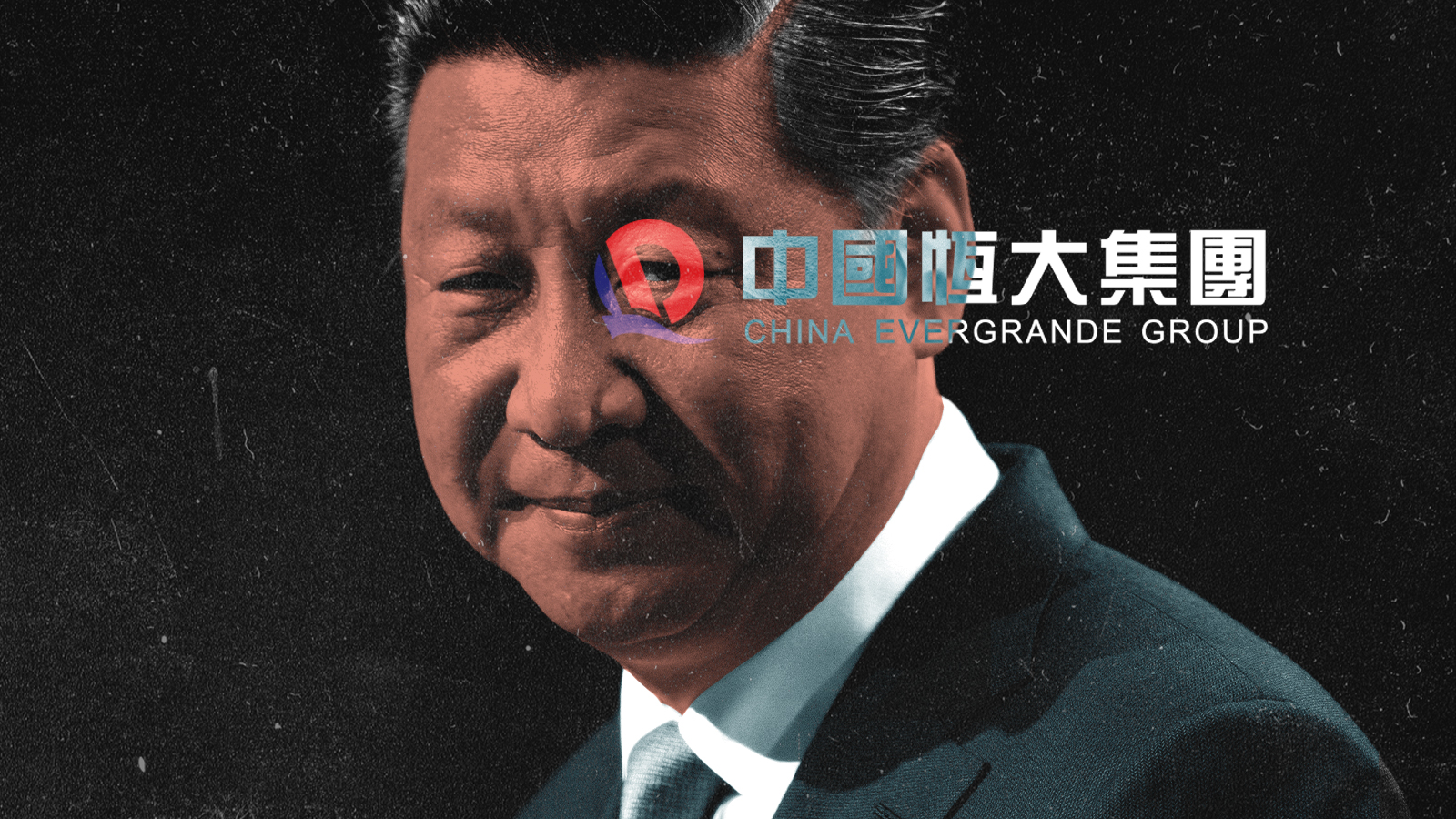
A free daily email with the biggest news stories of the day – and the best features from TheWeek.com
You are now subscribed
Your newsletter sign-up was successful
I've been through a few high-profile bankruptcies in my time.
I worked on Wall Street when the Russian government defaulted on its debt, triggering the implosion of the highly leveraged hedge fund Long Term Capital Management. Ditto when Enron turned out to be mostly an accounting fraud. Each of these was serious in its own way, and treated as such. To contain the fallout from LTCM, then-Fed Chair Alan Greenspan got all its major lenders in a room to agree on a common mechanism for unwinding that risk; after Enron's collapse, Congress passed the Sarbanes-Oxley Act to strengthen corporate governance. None led to a widespread economic collapse.
I left Wall Street when the Lehman Brothers bankruptcy triggered a full-blown financial crisis that ushered in the Great Recession. What was different about that bankruptcy, and what are the implications for the possible collapse of Evergrande, the Chinese real estate conglomerate teetering on the edge of bankruptcy?
The Week
Escape your echo chamber. Get the facts behind the news, plus analysis from multiple perspectives.

Sign up for The Week's Free Newsletters
From our morning news briefing to a weekly Good News Newsletter, get the best of The Week delivered directly to your inbox.
From our morning news briefing to a weekly Good News Newsletter, get the best of The Week delivered directly to your inbox.
One answer is that by letting Lehman Brothers collapse, the government triggered a widespread panic because of its effect on money market funds. Lehman issued a lot of short-term debt as part of its regular course of business, and money market funds — which are supposed to be functionally equivalent to savings accounts, a vehicle that yielded variable interest but whose principal was not at risk — owned a huge percentage of that debt. When Lehman failed, the principal in those funds dipped below par, which triggered the equivalent of a widespread run on the banks, putting the financial system into free-fall.
This problem could have been prevented if the government had seized control of Lehman Brothers, wiping out its equity investors but guaranteeing its short-term debt. Lehman wasn't "too big to fail" — it was just too big to fail without proper planning to cushion the financial system from the consequences of failure. And if Lehman had been an isolated case of a badly managed large firm, it could also have been resolved by other means, any of which would have been the end of the story, just as with LTCM and Enron.
But Lehman wasn't an isolated case. The problem was much more fundamental: The entire financial system was leveraged to an enormous housing bubble, and that bubble had begun to burst. Propping up the bubble itself would have been a mistake if it was even possible, but given the extent of leverage the entire financial system was at risk. The problem was systemic, and required a systemic solution.
And we got one — but its terms had profound consequences over the next decade and beyond. In America, the bailout of the financial system kept most of the major banks afloat, and prevented a much deeper recession. But homeowners were largely left out in the cold and inflation was allowed to bump along well below trend for years. The result was a sluggish and uneven recovery that fueled a zero-sum politics of resentment. In Europe, the emphasis was on protecting German banks and the value of the euro at the expense of workers in Spain, Italy, and Greece, a set of policies that fueled populism of the left and right and put the European Union under enormous structural strain.
A free daily email with the biggest news stories of the day – and the best features from TheWeek.com
Those are the important questions about Evergrande as well. Yes, it would be a very large bankruptcy — but even $300 billion in debt is relatively small in the context of a $16 trillion economy. If the only issue is unwinding that debt in an orderly fashion and protecting the financial system, China has all the tools it needs — indeed, given how much of the financial system is under direct government control, even talking in terms of tools understates their power.
The real danger comes from the degree to which the problems that plague Evergrande are systemic — and, if they are, how China's government will address them.
There's ample evidence that those problems are systemic — and serious. Beijing's development model plows Chinese citizens' extremely high rate of national savings into physical capital: power plants, roads, railways, and especially housing, to facilitate China's transformation from a mostly-rural to an overwhelmingly urban society. When those projects no longer had a clear case for being economically viable, though, China continued to build. In consequence, they overbuilt so much that people began to speak of "ghost cities," entire municipalities without inhabitants. While some of these have started to attract residents and businesses, the overhang is still enormous. But despite government efforts to encourage renting, real estate has remained a preferred investment for Chinese families, in part because they have few other options: Bank deposits have very low yields, the stock market is viewed as corrupt, and capital controls prevent investing outside of China.
That describes a classic housing bubble, and Evergrande is centrally exposed to it. China may want to punish Evergrande to warn other firms to improve their financial management, but if the bubble starts to pop, then even if contagion is prevented those other firms won't have a ready means of exit. And individual homeowners, of course, will have the least recourse of all.
Ultimately, the risk is to the Chinese political and economic model itself. A decade ago, the Chinese Communist Party could say that, whatever its other failures or oppressive features, it was delivering a dramatically increased standard of living, as well as certain freedoms. The scope of those freedoms has narrowed steadily in the Xi years, and economic growth has slowed as well. Beyond the short-term risk of unrest from angry bondholders, if the main mechanism for wealth-building — the value of housing — goes into reverse, what will the regime be able to point to for legitimacy? And what will happen to its economic model if ordinary people wonder why they are working so hard and saving so much? Beijing may make a showy example of a few real estate moguls and corporate executives to demonstrate that they are on the people's side, but you can't eat schadenfreude.
Neither can China's critics, though. The country that invented the non-fungible token is in a poor position to lecture anyone else about speculation, and those who have consistently bet against the Chinese model have been losing for 40 years. China's leadership is clearly aware that they have a problem, in Evergrande specifically and in the property market more generally. That's always the first and most important step to finding a solution. Notwithstanding the rising tension between our countries, we have no reason to hope that they don't.
Noah Millman is a screenwriter and filmmaker, a political columnist and a critic. From 2012 through 2017 he was a senior editor and featured blogger at The American Conservative. His work has also appeared in The New York Times Book Review, Politico, USA Today, The New Republic, The Weekly Standard, Foreign Policy, Modern Age, First Things, and the Jewish Review of Books, among other publications. Noah lives in Brooklyn with his wife and son.
-
 The ‘ravenous’ demand for Cornish minerals
The ‘ravenous’ demand for Cornish mineralsUnder the Radar Growing need for critical minerals to power tech has intensified ‘appetite’ for lithium, which could be a ‘huge boon’ for local economy
-
 Why are election experts taking Trump’s midterm threats seriously?
Why are election experts taking Trump’s midterm threats seriously?IN THE SPOTLIGHT As the president muses about polling place deployments and a centralized electoral system aimed at one-party control, lawmakers are taking this administration at its word
-
 ‘Restaurateurs have become millionaires’
‘Restaurateurs have become millionaires’Instant Opinion Opinion, comment and editorials of the day
-
 TikTok secures deal to remain in US
TikTok secures deal to remain in USSpeed Read ByteDance will form a US version of the popular video-sharing platform
-
 How will China’s $1 trillion trade surplus change the world economy?
How will China’s $1 trillion trade surplus change the world economy?Today’s Big Question Europe may impose its own tariffs
-
 Shein in Paris: has the fashion capital surrendered its soul?
Shein in Paris: has the fashion capital surrendered its soul?Talking Point Despite France’s ‘virtuous rhetoric’, the nation is ‘renting out its soul to Chinese algorithms’
-
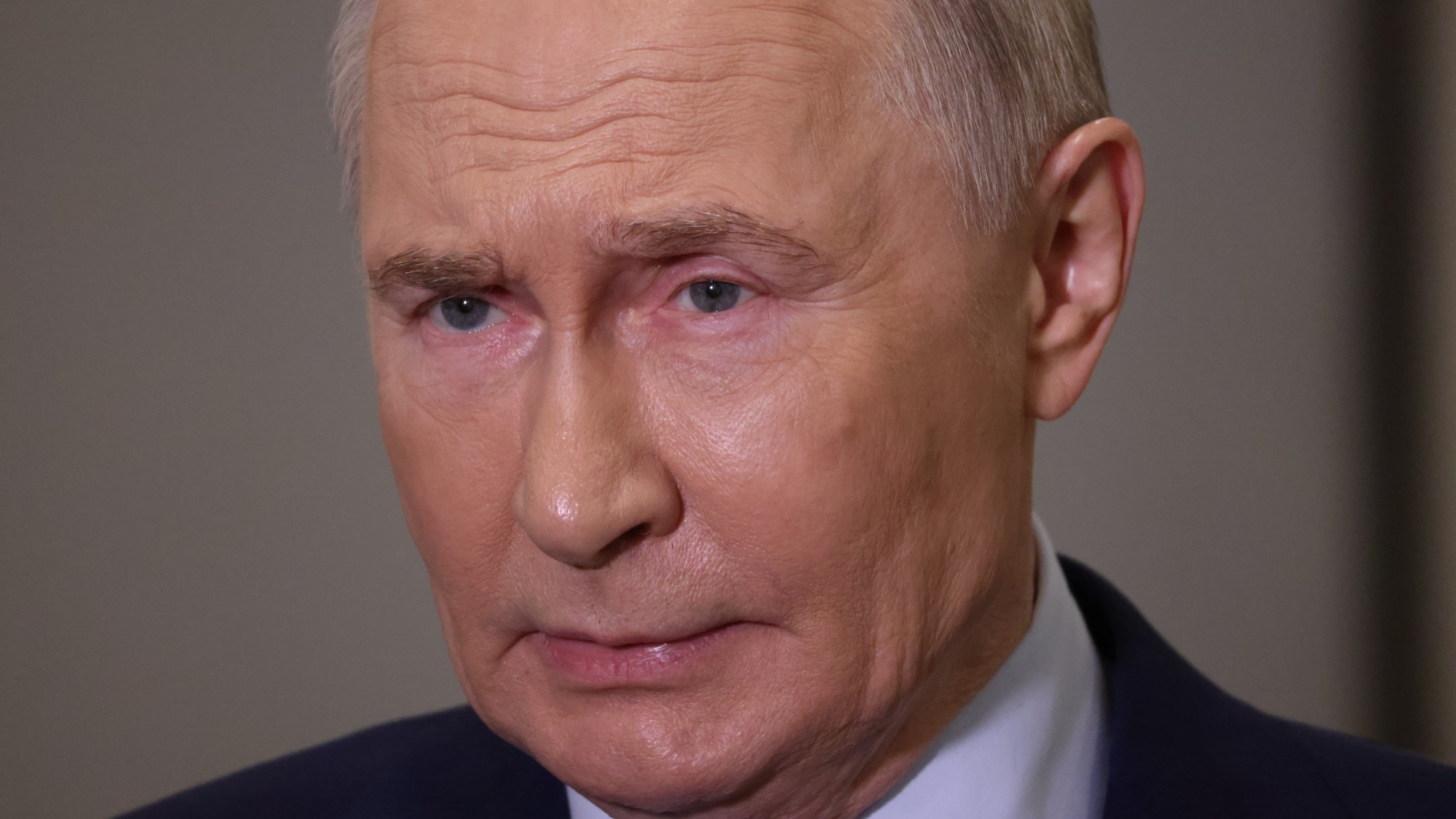 Will latest Russian sanctions finally break Putin’s resolve?
Will latest Russian sanctions finally break Putin’s resolve?Today's Big Question New restrictions have been described as a ‘punch to the gut of Moscow’s war economy’
-
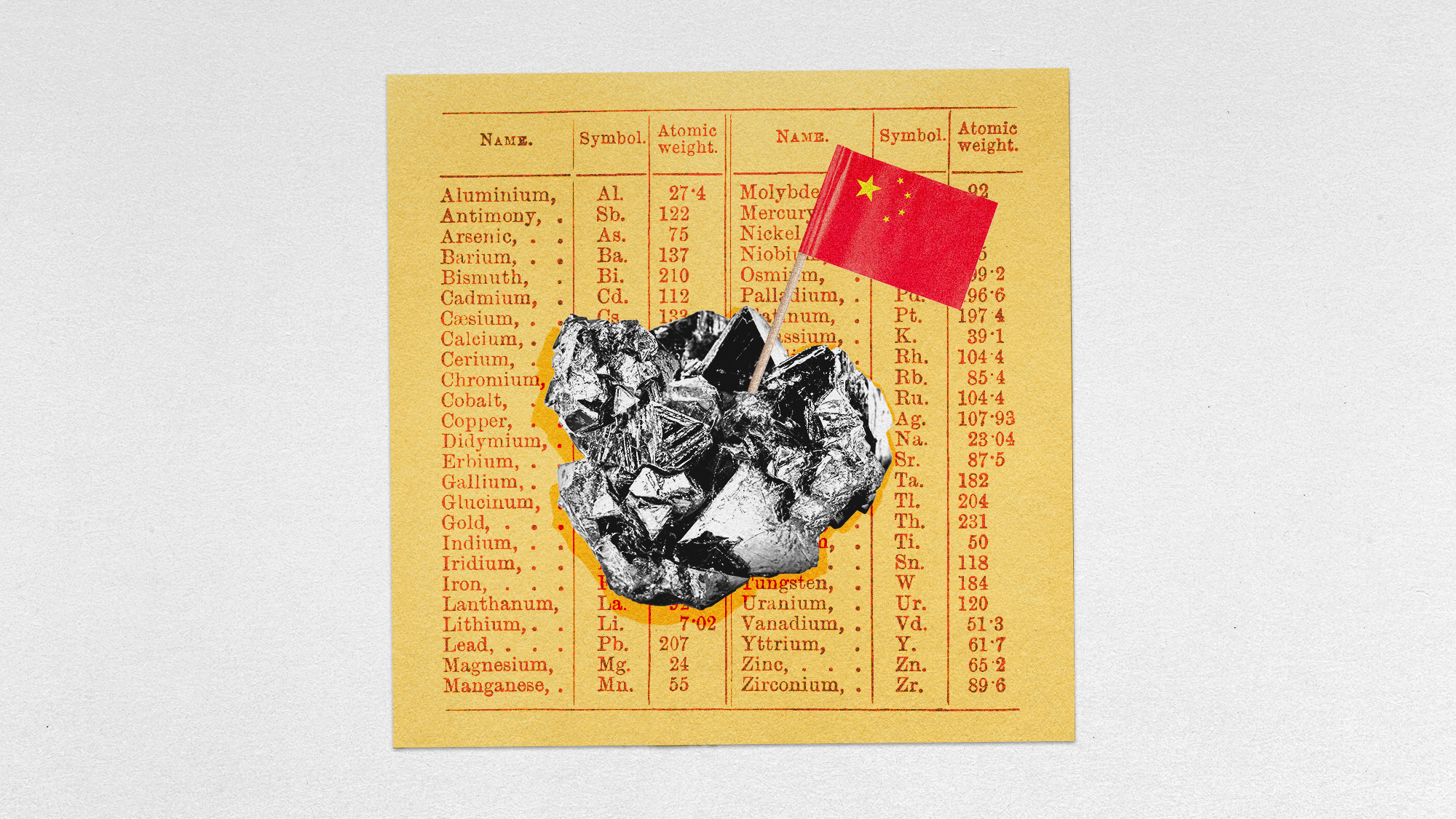 China’s rare earth controls
China’s rare earth controlsThe Explainer Beijing has shocked Washington with export restrictions on minerals used in most electronics
-
 The struggles of Aston Martin: burning cash not rubber
The struggles of Aston Martin: burning cash not rubberIn the Spotlight The car manufacturer, famous for its association with the James Bond franchise, is ‘running out of road’
-
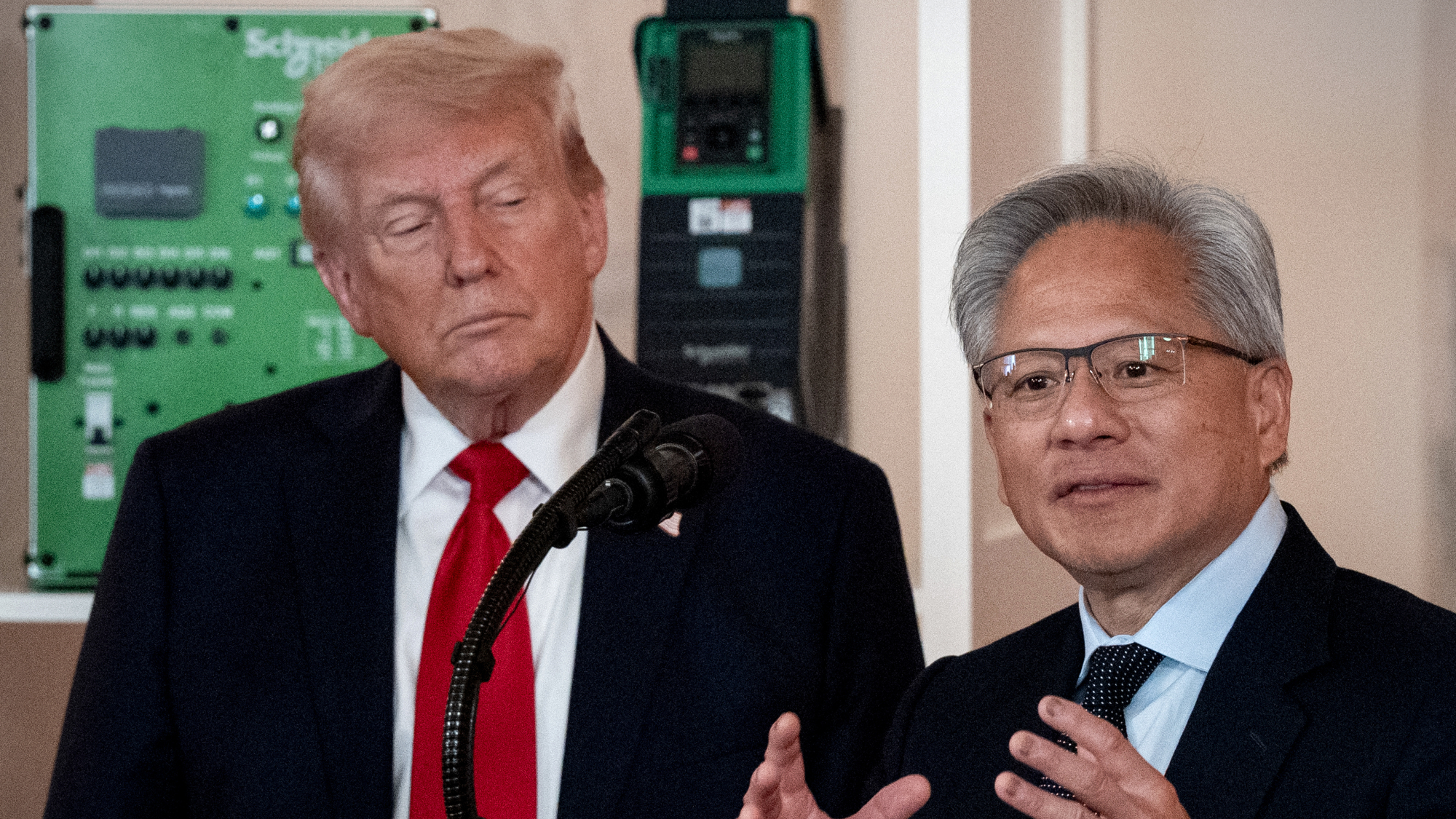 US to take 15% cut of AI chip sales to China
US to take 15% cut of AI chip sales to ChinaSpeed Read Nvidia and AMD will pay the Trump administration 15% of their revenue from selling artificial intelligence chips to China
-
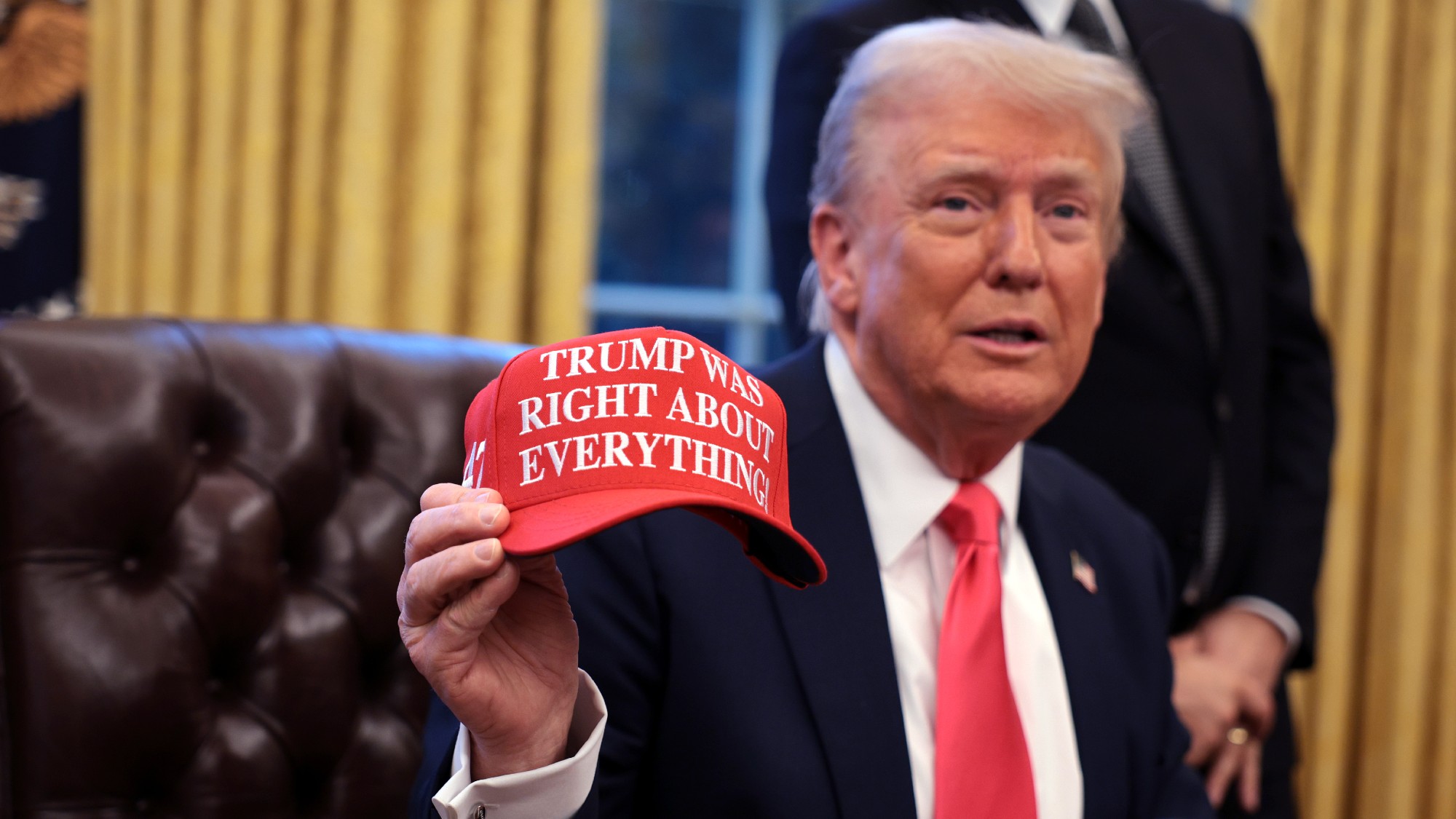 Is Trump's tariffs plan working?
Is Trump's tariffs plan working?Today's Big Question Trump has touted 'victories', but inflation is the 'elephant in the room'
